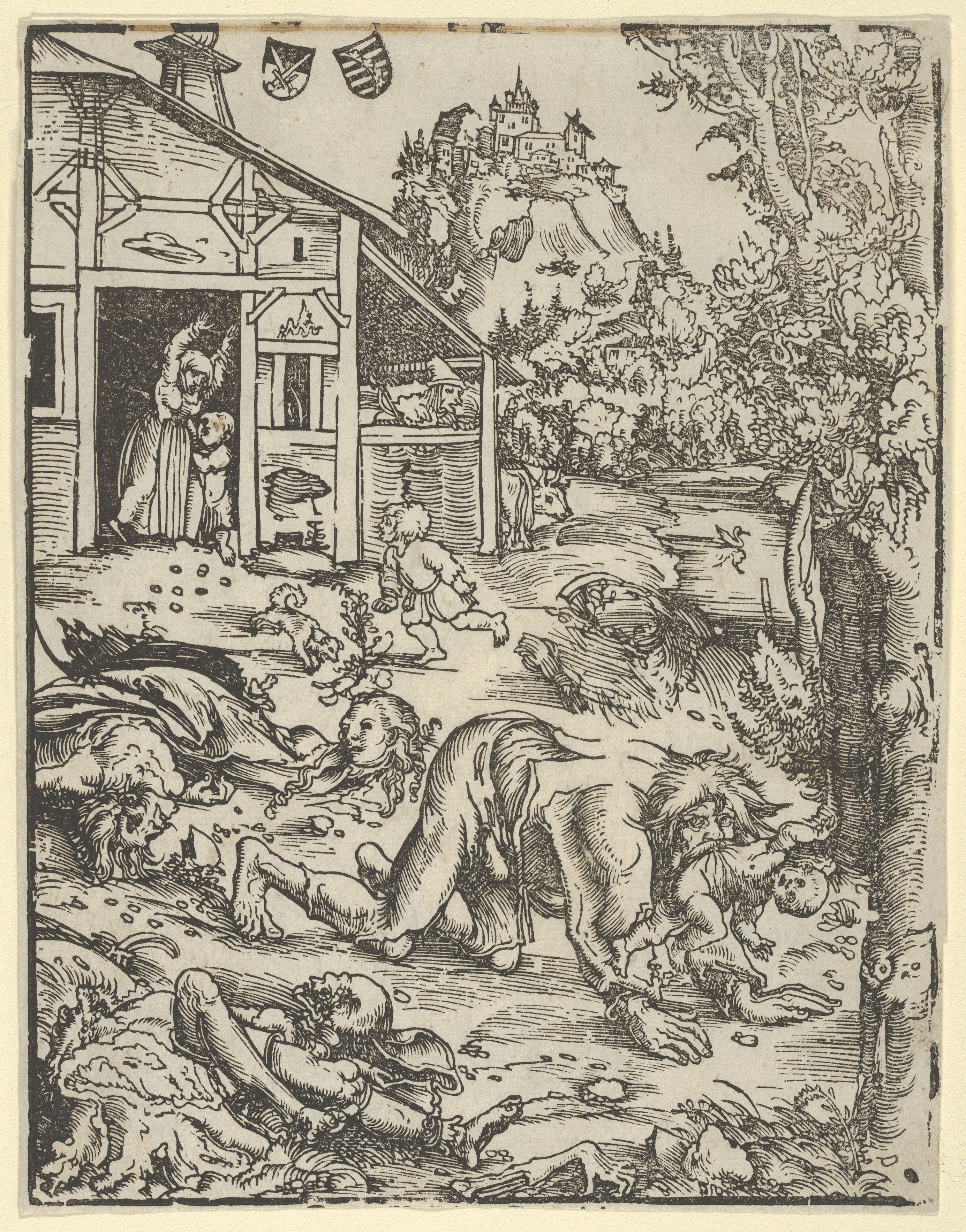Beerwolf on:
[Wikipedia]
[Google]
[Amazon]
 A ''Beerwolf'' (''Bärwolf'', ''Werwolf'') is a German folk-tale monster commonly known as a
A ''Beerwolf'' (''Bärwolf'', ''Werwolf'') is a German folk-tale monster commonly known as a
 A ''Beerwolf'' (''Bärwolf'', ''Werwolf'') is a German folk-tale monster commonly known as a
A ''Beerwolf'' (''Bärwolf'', ''Werwolf'') is a German folk-tale monster commonly known as a werewolf
In folklore, a werewolf (), or occasionally lycanthrope (from Ancient Greek ), is an individual who can shapeshifting, shapeshift into a wolf, or especially in modern film, a Shapeshifting, therianthropic Hybrid beasts in folklore, hybrid wol ...
.
In a debate arranged by Philip of Hesse and the Elector of Saxony in 1539, when it appeared the Holy Roman Emperor
The Holy Roman Emperor, originally and officially the Emperor of the Romans (disambiguation), Emperor of the Romans (; ) during the Middle Ages, and also known as the Roman-German Emperor since the early modern period (; ), was the ruler and h ...
Charles V Charles V may refer to:
Kings and Emperors
* Charles V, Holy Roman Emperor (1500–1558)
* Charles V of Naples (1661–1700), better known as Charles II of Spain
* Charles V of France (1338–1380), called the Wise
Others
* Charles V, Duke ...
was readying to attack the Lutherans
Lutheranism is a major branch of Protestantism that emerged under the work of Martin Luther, the 16th-century German friar and reformer whose efforts to reform the theology and practices of the Catholic Church launched the Reformation in 15 ...
, Martin Luther
Martin Luther ( ; ; 10 November 1483 – 18 February 1546) was a German priest, Theology, theologian, author, hymnwriter, professor, and former Order of Saint Augustine, Augustinian friar. Luther was the seminal figure of the Reformation, Pr ...
introduced the concept of ''Beerwolf'' to describe the Pope
The pope is the bishop of Rome and the Head of the Church#Catholic Church, visible head of the worldwide Catholic Church. He is also known as the supreme pontiff, Roman pontiff, or sovereign pontiff. From the 8th century until 1870, the po ...
and the Emperor. In the context of resistance theory, the ''Beerwolf'', "in contrast to a mere tyrant, not only broke the law, but overturned the entire moral order upon which it is based. All the subjects of such a ruler ... had the right to resist and even to kill him and all his supporters". The point was that Luther thought the Emperor and the Pope were just such apocalyptic tyrants, and that the present situation justified all efforts to resist them. Despite this Luther continued to resist armed religious conflict against the Emperor and Pope, the Schmalkaldic War
The Schmalkaldic War (; July 1546May 1547) was fought within the territories of the Holy Roman Empire between the allied forces of Charles V, Holy Roman Emperor and Maurice, Duke of Saxony against the Lutheran Schmalkaldic League, with the forc ...
beginning a year after his death.
The significance of the term lies in the fact that, for most of his life, Luther held that no subject could actively resist his secular ruler, an issue of obvious significance in a time when many rulers in the German lands and their respective subjects held competing religious beliefs. The concept of ''Beerwolf'' marked Luther's final, and most extreme, position on resistance theory, as it relied on natural law
Natural law (, ) is a Philosophy, philosophical and legal theory that posits the existence of a set of inherent laws derived from nature and universal moral principles, which are discoverable through reason. In ethics, natural law theory asserts ...
(specifically, in a similar manner to what would later be called Hobbes
Thomas Hobbes ( ; 5 April 1588 – 4 December 1679) was an English philosopher, best known for his 1651 book ''Leviathan'', in which he expounds an influential formulation of social contract theory. He is considered to be one of the founders ...
' right to self-preservation) instead of earlier and more limited rights to resistance that Luther had accepted as flowing from German constitutional law.
The 1550 '' Magdeburg Confession'' included a ''Beerwolf'' clause that had to be fulfilled before an evil ruler could be resisted by the lesser magistrate
The doctrine of the lesser magistrate is a concept in Protestant thought. A lesser magistrate is a ruler such as a prince who is under a greater ruler such as an emperor. The doctrine of the lesser magistrate is a legal system explaining the exact ...
s.Whitford, David, ''Tyranny and Resistance: The Magdeburg Confession and the Lutheran Tradition'', 2001, 144 pages
The concept of just rebellion that the term ''Beerwolf'' introduced was subsequently developed by fellow Protestants who faced a similar situation in France, the Huguenot Monarchomachs
The Monarchomachs () were originally French Huguenot theorists who opposed monarchy at the end of the 16th century, known in particular for having theoretically justified tyrannicide. The term was originally a pejorative word coined in 1600 by ...
.
See also
* Right of rebellionReferences
Martin Luther Concepts in political philosophy German legendary creatures Werewolves Cultural depictions of Charles V, Holy Roman Emperor {{Lutheran-stub